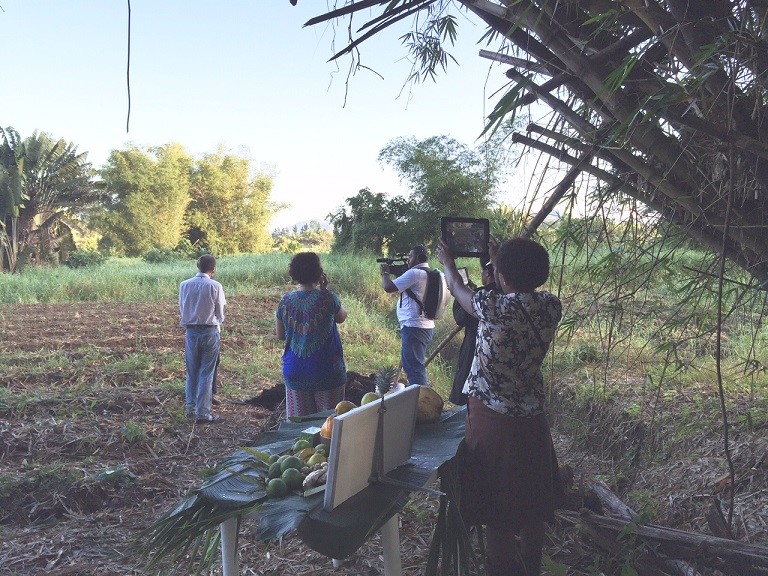 SPC PAPP has been working with FAO and other partners to develop a new Strategic Plan for Agricultural and Fisheries Statistics (P-SPAFS). P-SPAFS is a 10 year strategy designed to strengthen the use of evidence in public and private decision making. The Strategy, based on the Global Strategy for Agriculture and Fisheries Statistics was discussed and developed at a 2015 regional meeting of Pacific agricultural statisticians and policy makers. The Strategy is already creating awareness for greater coordination.
SPC PAPP has been working with FAO and other partners to develop a new Strategic Plan for Agricultural and Fisheries Statistics (P-SPAFS). P-SPAFS is a 10 year strategy designed to strengthen the use of evidence in public and private decision making. The Strategy, based on the Global Strategy for Agriculture and Fisheries Statistics was discussed and developed at a 2015 regional meeting of Pacific agricultural statisticians and policy makers. The Strategy is already creating awareness for greater coordination.
Already the UN Statistics Institute for Asia Pacific (UNSIAP) in partnership with the Pacific Community (SPC) and the World Bank are jointly running a regional training for statisticians, including those involved in agriculture, on the use of tablets and smartphones for data collection.
Alick Nyasulu, Statistician and Lecturer at UNSIAP said “our engagement with PAPP through the P-SPAFS helped us target participants for this training who would most benefit and helped us link the capacity building directly with ongoing initiatives on agricultural statistics in the region.”
The use of Computer Assisted Personal Interviewing (CAPI) surveys facilitates the collection of data using tablets or smartphones. This has the potential to increase both the speed and accuracy of data collection. The training is being conducted alongside training on STATA. STATA is a statistical software which enables quick and accurate data analysis. Using CAPI software in combination with STATA provides a significant boost to the speed, accuracy and quality of data collected.
Alessandro Romeo, Statistics officer for FAO Samoa said “The use of STATA in combination with CAPI has the potential to revolutionise how we collect data in the Pacific-enormous gains in speed, accuracy and regional comparability are possible. Thus, it is not only recommendable but it is necessary that data collection in the Pacific is done via new technologies to come-up with timely and reliable evidence based policy making.”




CONNECT WITH US